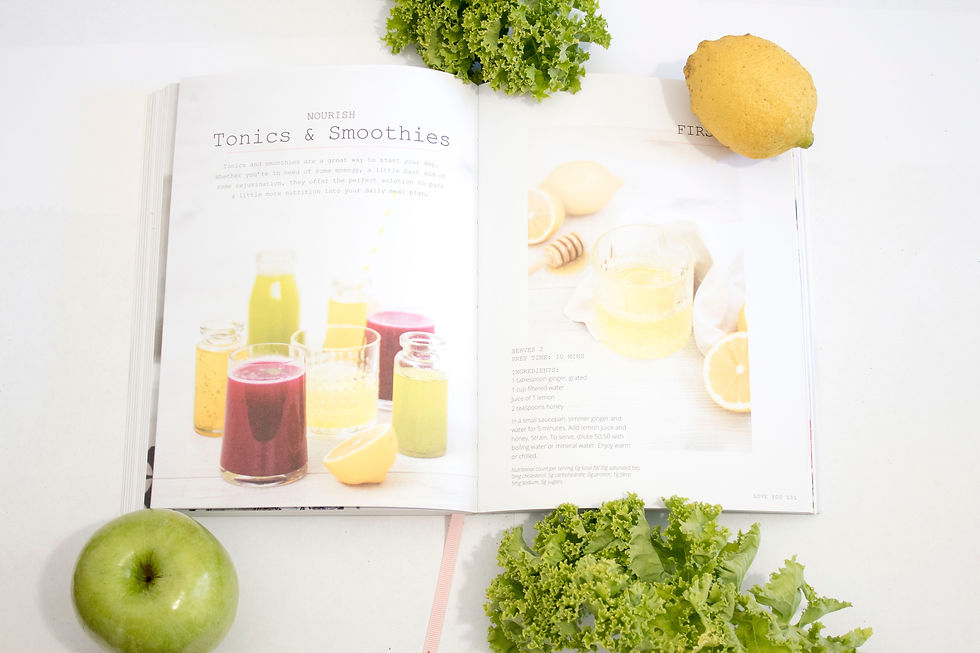Are Superfoods Really Super?
- Lauren
- Sep 1, 2020
- 3 min read

If you believe the hype, you might think that there are foods to reverse obesity, fight cancer and treat psoriasis - just to name a few. Have you ever wondered how these foods end up winning the term 'super' and just who decides that one food is significantly better than another? Do these crafty advertising claims sway your decisions in the supermarket?
If you've answered yes - read on and we will put an end to your guessing games (and save you some money in the process because just quietly, super greens powders and the like are EXPENSIVE)!
The reality is, that these claims are just claims. In the nutrition field, experts don't recognise any foods as being 'super' and understand that all wholefoods come with their own unique health benefits. Some are more nutrient-dense than others but of course, need to be a part of as a balanced diet that is suited to the individual!
A downside of superfoods is that this title alone may sway people to focus on a few specific 'super' foods, blinding them to other equally (and more) nutritious options that aren’t as seemingly glamorous. Variety in our diet is key, not just to gain the benefits of eating a wide array of essential vitamins and minerals but to also prevent a deficiency of a particular food group or nutrient.

Not every food is suited to each of us either, be it 'healthy' or 'unhealthy'! Let's take the tomato for example. Although it is full of amazing nutrients (vitamin C, potassium, folate, vitamin K & the antioxidant lycopene) it's not necessarily suited to everyone. Some people may be able to digest and process the tomato really well, while others know that it doesn't work well for them and may struggle digesting it. This phenomenon is no different for our 'superfood' friends. What is good for one person, won't be good for the other and if not included as a part of an otherwise balanced diet may actually be of no benefit for the person! Our bodies are so unique, as our lifestyles, so it's no surprise that our diets should be tailored to match!
Foods that we often see "glamorised" that us nutritionists (often) don't rate are:
- Coconut yoghurt and yoghurt alternatives: these alternatives are often loaded with fillers and thickeners. Per 100g they have a higher saturated fat and carbohydrate content and are considerably lower in protein. Full-fat Greek yoghurt has many probiotic strains that are essential for good gut health. Coconut yoghurt does not offer the same calcium that Greek yoghurt does and overall, we don't think nutritionally it should be compared to a yoghurt - instead maybe a cream.
- Processed gluten-free products (just because it's gluten-free, it doesn't mean it's nutritious): we know that processed foods aren't healthy, but for some reason, if the label says "gluten-free" some of us automatically think it's nutritious. WRONG! Many gluten-free alternatives are high in sugar, preservatives and additives -just the same as any other processed food. Gluten is a protein that some people have an allergy to (coeliac disease) gluten-free, just means that the flour they have used is lacking that protein -the rest of the product will likely be similar to the regular, non-gluten-free option.
- Store-bought kombucha: again, these beverages are processed and processed some more. Kombucha is made from fermenting tea with sugar. The bacteria is said to produce beneficial bacteria during the fermentation process that are good for the gut. The issue with store-bought kombuchas are that next to none of the probiotics are left living by the time it gets to your mouth, especially the ones that have not been kept cool during transport! It can also be high in sugar!
- Health bars/ powders/ potions: they're often highly processed and a far stretch from their natural state. We prefer whole foods to get your energy from! Potions and powders should never replace a balanced diet!
- Mylk alternatives: plant-based 'mylks' have become trendy. They have gained a reputation for being healthier than traditional dairy, but that's not necessarily true. “They can contain lower amounts of protein, less calcium and often have more sugar than traditional dairy milk.
So, in short, if you can always opt for foods in their natural state. It's great to add variety in the diet and explore a range of whole-foods. Learn how to select them, prepare them and enjoy them but please do not be distracted by the hype surrounding a particular fad or food. Instead, you should be focusing on creating a diet rich in whole foods that are suited to your body!
As always, if you would like guidance on finding the right foods to fit you! Please get in touch. We would love to help!





Comments